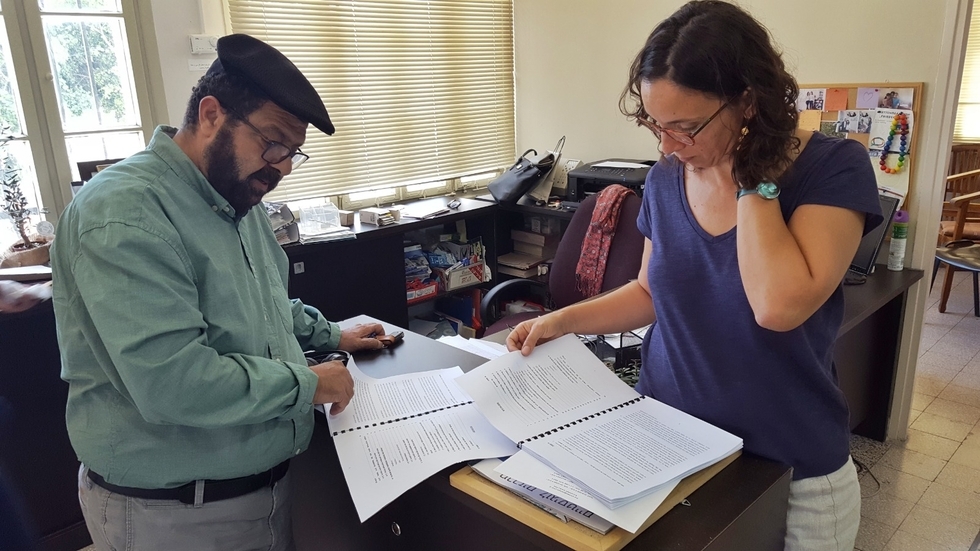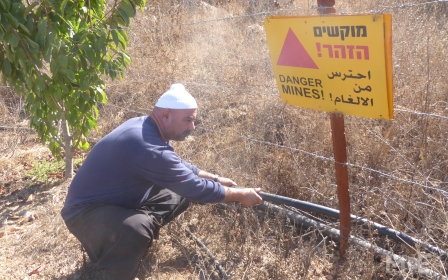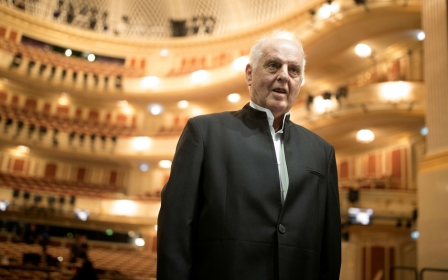Palestinian leaders in Israel petition High Court over nation-state law

Palestinian leaders in Israel petitioned the High Court on Tuesday over the new Jewish nation-state law, the latest addition to Israel's Basic Law, that passed in the Knesset last month.
Adalah, a rights group for Palestinian citizens of Israel, submitted a petition against the law on behalf of Palestinian leaders in Israel, including the High Follow-Up Committee for Arab Citizens of Israel, the National Committee of Arab Mayors and the Joint List members of the Knesset.
The other petitions were submitted by Druze MKs Akram Hassoun, Saleh Saad and Hamada Amar, representatives of the Bedouin communities and the Meretz party.
The first hearing for the petitions is scheduled for January.
Adalah said in its statement on Tuesday that "the law guarantees the ethnic-religious character of Israel as exclusively Jewish and entrenches the privileges enjoyed by Jewish citizens, while simultaneously anchoring discrimination against Palestinian citizens and legitimising exclusion, racism, and systemic inequality".
The petitioners said the law was "racist, colonialist, and illegitimate" because it denied the civil and national rights of Palestinians in their homeland, the statement added.
"There is no [other] constitution in the world today containing a clause that determines that the state belongs to one ethnic group or that a given state is exclusive to a certain ethnic group... There is also no single constitution in the world that does not include the right to equality for all its citizens and residents."
Adalah lawyers also argued that the Jewish nation-state law negates the right of the Palestinian people to self-determination in violation of the United Nations charter, and that the law's application to East Jerusalem and the Golan Heights also stands in violation of international law, which specifies that these areas are occupied by Israel.
The nation-state law is part of Israel's so-called Basic Law, a de facto constitution. The new law makes no mention of equality or democracy, meaning that the country's Jewish character is prioritised over Palestinians, Druze and Circassians in Israel.
It announces the country as a nation state of the Jewish people and makes Hebrew the country's national language. Arabic, previously considered an official language, was granted only special status.
It also describes the building of Jewish settlements as being in the Israeli national interest. The law was first proposed in the Knesset in August 2011.
'An earthquake'
Israel's justice minister, Ayelet Shaked, said on Sunday that any move by the High Court to overturn the nation-state law would lead to "an earthquake, a war between the authorities”, Haaretz reported.
“The High Court justices are very serious and professional people," she said. "The Knesset is the constituent assembly, which defines and determines the Basic Law. They have to interpret the laws in accordance with the Basic Law, and I don’t believe a majority on the Supreme Court will decide to take such a step. I very much hope that this doesn’t happen and I don’t believe it will happen."
The Israeli High Court has made no moves to overturn Basic Law legislation to date, prompting fears that the petitions will achieve little more than media coverage.
Middle East Eye propose une couverture et une analyse indépendantes et incomparables du Moyen-Orient, de l’Afrique du Nord et d’autres régions du monde. Pour en savoir plus sur la reprise de ce contenu et les frais qui s’appliquent, veuillez remplir ce formulaire [en anglais]. Pour en savoir plus sur MEE, cliquez ici [en anglais].




